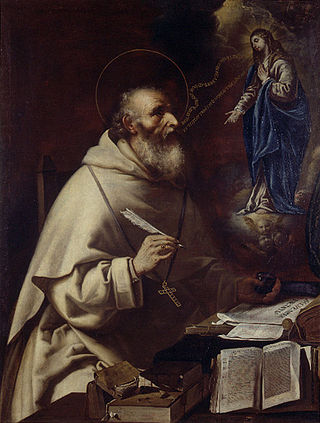
Albertus Magnus, also known as Saint Albert the Great, Albert of Swabia or Albert of Cologne, was a German Dominican friar, philosopher, scientist, and bishop, considered one of the greatest medieval philosophers and thinkers.

The Order of Preachers, commonly known as the Dominican Order, is a Catholic mendicant order of pontifical right that was founded in France by a Castilian priest named Dominic de Guzmán. It was approved by Pope Honorius III via the papal bull Religiosam vitam on 22 December 1216. Members of the order, who are referred to as Dominicans, generally display the letters OP after their names, standing for Ordinis Praedicatorum, meaning 'of the Order of Preachers'. Membership in the order includes friars, nuns, active sisters, and lay or secular Dominicans. More recently, there have been a growing number of associates of the religious sisters who are unrelated to the tertiaries.

Thomas Hobbes was an English philosopher, best known for his 1651 book Leviathan, in which he expounds an influential formulation of social contract theory. He is considered to be one of the founders of modern political philosophy.

William Paley was an English Anglican clergyman, Christian apologist, philosopher, and utilitarian. He is best known for his natural theology exposition of the teleological argument for the existence of God in his work Natural Theology or Evidences of the Existence and Attributes of the Deity, which made use of the watchmaker analogy.

Richard was an English prince who was King of the Romans from 1257 until his death in 1272. He was the second son of John, King of England, and Isabella, Countess of Angoulême. Richard was nominal Count of Poitou from 1225 to 1243, and he also held the title Earl of Cornwall since 1225. He was one of the wealthiest men in Europe and joined the Barons' Crusade, where he achieved success as a negotiator for the release of prisoners and assisted with the building of the citadel in Ascalon.
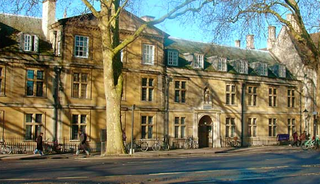
Blackfriars Priory is a Dominican religious community in Oxford, England. Its primary work is the administration of two educational institutions: Blackfriars Studium, a centre of theological studies in the Roman Catholic tradition; and Blackfriars Hall, a constituent permanent private hall of the University of Oxford. The current prior of Blackfriars is Dominic White. The name Blackfriars is commonly used in Britain to denote a house of Dominican friars, a reference to their black cappa, which forms part of their habit.

Robert Kilwardby was an Archbishop of Canterbury in England and a cardinal. Kilwardby was the first member of a mendicant order to attain a high ecclesiastical office in the English Church.
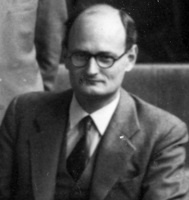
Richard Mervyn Hare, usually cited as R. M. Hare, was a British moral philosopher who held the post of White's Professor of Moral Philosophy at the University of Oxford from 1966 until 1983. He subsequently taught for a number of years at the University of Florida. His meta-ethical theories were influential during the second half of the twentieth century.

Analytical Thomism is a philosophical movement which promotes the interchange of ideas between the thought of Thomas Aquinas, and modern analytic philosophy. It is a branch of analytic scholasticism that draws on other scholastic sources, esp. John Duns Scotus.
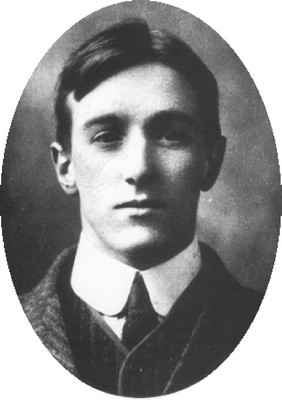
Robin George Collingwood was an English philosopher, historian and archaeologist. He is best known for his philosophical works, including The Principles of Art (1938) and the posthumously published The Idea of History (1946).

The Summa contra Gentiles is one of the best-known treatises by Thomas Aquinas, written as four books between 1259 and 1265.
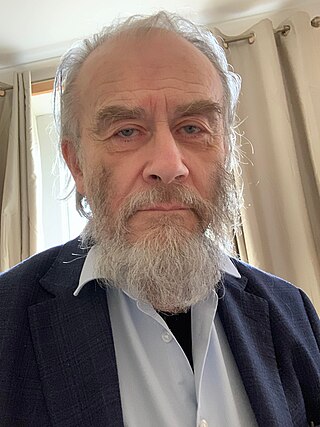
Stephen Richard Lyster Clark is an English philosopher and professor emeritus of philosophy at the University of Liverpool. Clark specialises in the philosophy of religion and animal rights, writing from a philosophical position that might broadly be described as Christian Platonist. He is the author of twenty books, including The Moral Status of Animals (1977), The Nature of the Beast (1982), Animals and Their Moral Standing (1997), G.K. Chesterton (2006), Philosophical Futures (2011), and Ancient Mediterranean Philosophy (2012), as well as 77 scholarly articles, and chapters in another 109 books. He is a former editor-in-chief of the Journal of Applied Philosophy (1990–2001).
Richard Rufus was a Cornish Franciscan scholastic philosopher and theologian.
Durandus of Saint-Pourçain was a French Dominican, philosopher, theologian, and bishop.
Hilary Kornblith is an American philosopher. He is a professor of philosophy at the University of Massachusetts Amherst and one of contemporary epistemology's most prominent proponents of naturalized epistemology.

Raymond James Long is an American academic and professor emeritus of philosophy at Fairfield University in Fairfield, Connecticut. He is also a faculty member at St. John Fisher Seminary in Stamford, Connecticut. Long was the president of the Society for Medieval and Renaissance Philosophy.
Adam of Bockenfield was an English Franciscan philosopher, who taught at the University of Oxford in the early 1240s. He was an early commentator on a number of Aristotle's works, in particular those dealing with natural philosophy.
Richard Fishacre was an English Dominican theologian, the first to hold the Dominican chair at the University of Oxford. He taught at Oxford and authored the first commentary on the Four Books of Sentences of Peter Lombard to be issued from the Oxford schools. Fishacre wrote his commentary between 1241 and 1245.

Thomas Aquinas was an Italian Dominican friar and priest, the foremost Scholastic thinker, as well one of the most influential philosophers and theologians in the Western tradition. He was from the county of Aquino in the Kingdom of Sicily.

Richard Hooker was an English priest in the Church of England and an influential theologian. He was one of the most important English theologians of the sixteenth century. His defence of the role of redeemed reason informed the theology of the seventeenth-century Caroline Divines and later provided many members of the Church of England with a theological method which combined the claims of revelation, reason and tradition.













